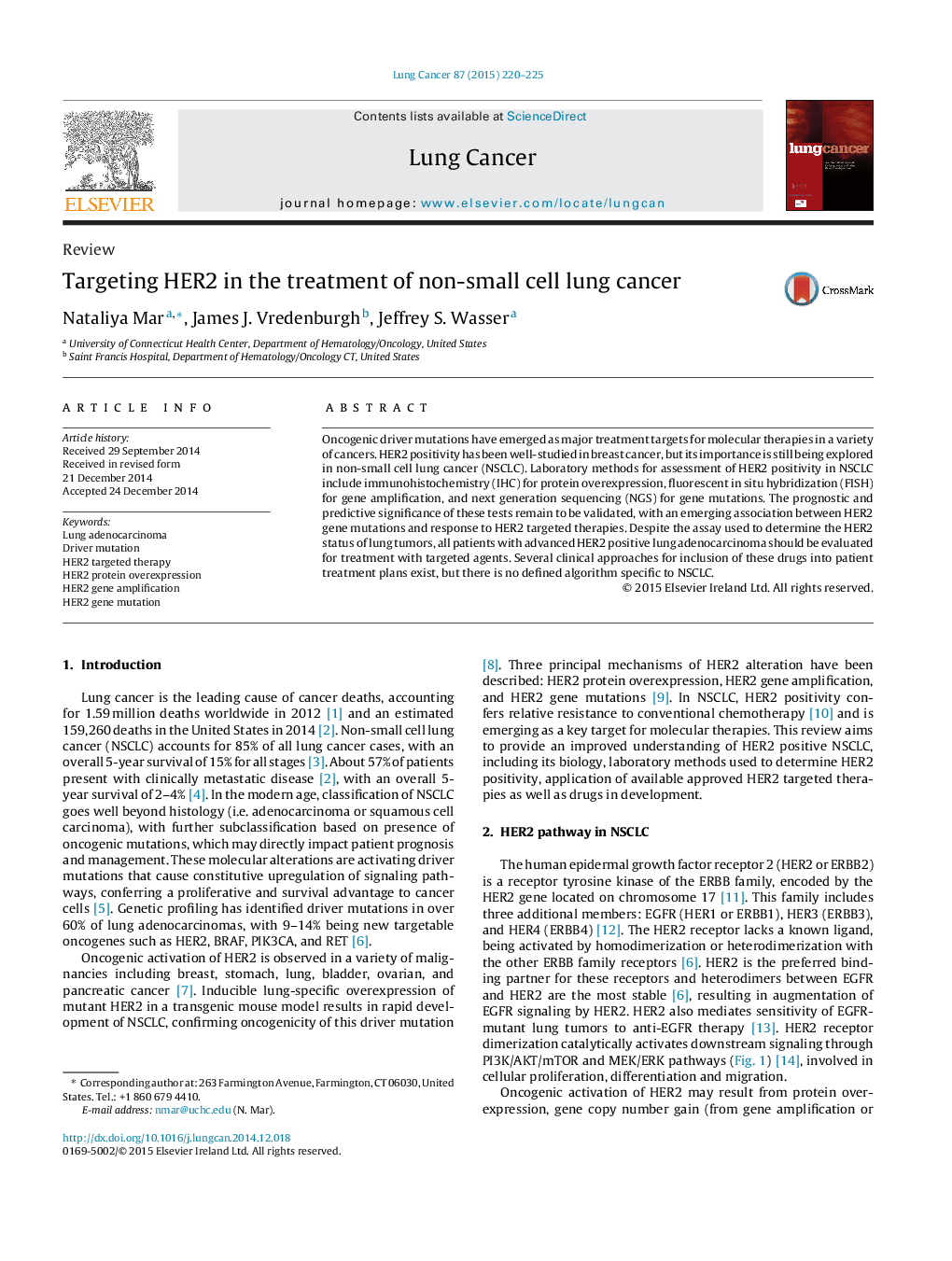| کد مقاله | کد نشریه | سال انتشار | مقاله انگلیسی | نسخه تمام متن |
|---|---|---|---|---|
| 2140737 | 1088255 | 2015 | 6 صفحه PDF | دانلود رایگان |

• Oncogenic driver mutations are treatment targets for molecular therapies in NSCLC.
• HER2 positivity is well-studied in breast cancer, but poorly-defined in NSCLC.
• Prognostic and predictive value of tissue-based assays in NSCLC need validation.
• HER2 gene mutations may be associated with response to targeted agents in NSCLC.
• All patients with HER2 positive NSCLC should be considered for targeted therapies.
Oncogenic driver mutations have emerged as major treatment targets for molecular therapies in a variety of cancers. HER2 positivity has been well-studied in breast cancer, but its importance is still being explored in non-small cell lung cancer (NSCLC). Laboratory methods for assessment of HER2 positivity in NSCLC include immunohistochemistry (IHC) for protein overexpression, fluorescent in situ hybridization (FISH) for gene amplification, and next generation sequencing (NGS) for gene mutations. The prognostic and predictive significance of these tests remain to be validated, with an emerging association between HER2 gene mutations and response to HER2 targeted therapies. Despite the assay used to determine the HER2 status of lung tumors, all patients with advanced HER2 positive lung adenocarcinoma should be evaluated for treatment with targeted agents. Several clinical approaches for inclusion of these drugs into patient treatment plans exist, but there is no defined algorithm specific to NSCLC.
Journal: Lung Cancer - Volume 87, Issue 3, March 2015, Pages 220–225